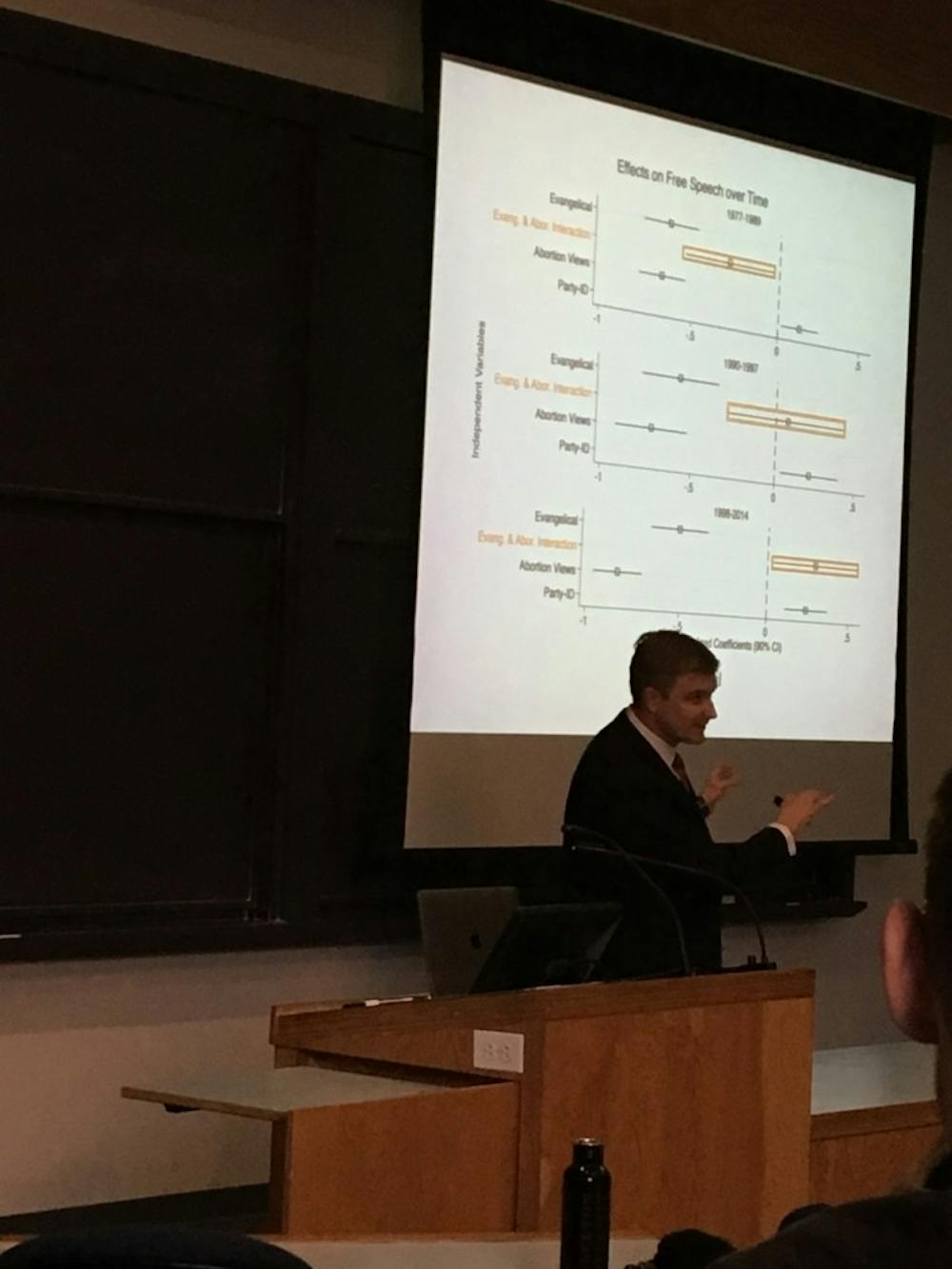“Eighty-one,” said Andrew R. Lewis. “That’s the percentage of white evangelicals who voted for Donald Trump in the 2016 election. The argument is that Donald Trump doesn’t align with the values of white evangelicals, so how could this be?” Lewis is an Assistant Professor of Political Science at the University of Cincinnati, and he began his Feb. 27 lecture at Princeton with a single number projected onto a slide.
In the lecture, “The Rights Turn in Conservative Christian Politics: How Abortion Transformed the Culture Wars,” Lewis presented findings from his research on the “refashioning,” or shift, in defining the evangelical right in American politics.
“This eighty-one percent number has masked a whole bunch of change that’s happening underneath the surface,” said Lewis. “The cultural landscape has really shifted.”
According to Lewis, conservative Christian influence on politics has shifted from the Moral Majority of the 1970s and 1980s to a “cultural minority” today.
This shift, Lewis argued, has centered around the language that conservative leaders use to discuss contentious issues.
“The conservative Christian right now speaks and thinks and operates in the language of rights, in the tactics of rights,” continued Lewis, “and this is a really big change.”
According to Lewis, the right had originally opposed the language that they now seem to have adopted.
“In the 1970s and 1980s, the political left had used the language of individual rights,” noted Lewis. “The conservative evangelical right had been concerned about too much rights talk.”

This shift is the central topic of Lewis’s 2017 book, “The Rights Turn in Conservative Christian Politics: How Abortion Transformed the Culture Wars.” In the lecture, he focused on two chapters from the book: same-sex marriage and abortion.
“I’m interested in a variety of factors,” said Lewis. “How did this change occur, where did we see it, and in many senses, what are the effects of this big change?”
For Lewis, the most important issue in the language of conservative politics is not same-sex marriage but “the politics of abortion.”
“The politics of abortion has been central to teaching conservative evangelicals about the value of rights politics,” Lewis said.

He argued for two major effects. First, abortion has consistently focused on the language of human rights, on the “right to life.”
Yet evangelicals were slow to join Catholic anti-abortion protest groups in the 1960s and 1970s, Lewis said. When evangelicals did get involved, they “tended to use the language of morality, not rights.”
“The data, qualitative and quantitative, shows that the language of human rights actually won out,” Lewis said.
Second, he argued, abortion “influences the way that evangelicals think about their values.”
According to Lewis, politicians use contentious issues like abortion to expand their reach into other issues.
“Abortion becomes the mechanism to engage in issues, whether that’s in health care or free speech or religious freedom,” Lewis said.
“This issue matters to [conservatives]. It’s stable. It’s strong. If you look at data on other issues, it’s ranked pretty highly,” he added. “So it’s a good thing for leaders to tap into, and they do.”
The lecture, sponsored by the James Madison Program in American Ideals and Institutions as part of the America’s Founding and Future series, was held in Lewis Library 120 on Wednesday, Feb. 27 at 4:30 p.m.
The next lecture in the series, “Speak Freely: Why Universities Must Defend Free Speech,” will be on Monday, April 9 at 4:30 p.m. in Bowen Hall 22.








